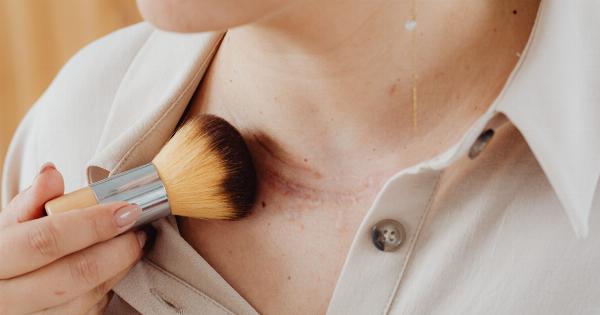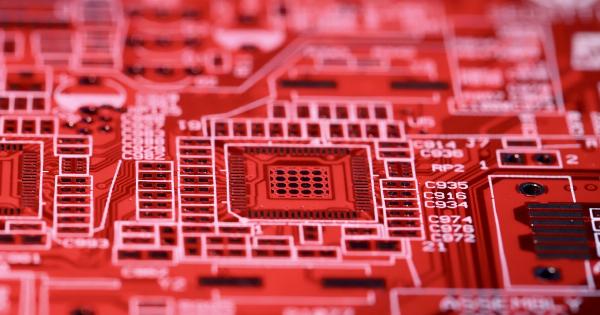Lorem ipsum dolor sit amet, consectetur adipiscing elit. Fusce vitae interdum est. Integer et semper leo. Integer a neque ultricies, dapibus felis quis, euismod ante. Duis rutrum tempus aliquam. Curabitur accumsan et arcu sit amet ullamcorper.
Pellentesque eget semper ex. Aliquam non orci id purus condimentum luctus. Sed quis lobortis leo.
Understanding the Skin’s Natural Barrier
One of the most important functions of the skin is acting as a barrier to protect the body against external factors.
The outermost layer of the skin, known as the epidermis, is responsible for maintaining this barrier and preventing the entry of harmful substances into the body. The epidermis is composed of several layers of cells and is constantly renewing itself.
The outermost layer of the epidermis, called the stratum corneum, is made up of dead skin cells that are tightly packed together. These cells provide a physical barrier that prevents water loss and protects against infections.
However, the stratum corneum is not invincible and can be damaged over time.
Causes of Skin Disintegration
There are several factors that can lead to the disintegration of the skin’s natural barrier. One of the primary causes is excessive exposure to environmental stressors, such as pollutants, harsh weather conditions, and UV radiation.
These stressors can weaken the stratum corneum, making it more susceptible to damage.
Another common cause of skin disintegration is the use of harsh skincare products or excessive cleansing. Certain cleansers and exfoliants can strip away the natural oils and disrupt the balance of the skin, leading to dryness and irritation.
Over-exfoliation can also thin out the stratum corneum and compromise its integrity.
In addition, certain medical conditions, such as eczema and psoriasis, can weaken the skin’s natural barrier function. These conditions often result in inflammation and excessive dryness, making the skin more prone to damage and disintegration.
Recognizing the Signs of Skin Disintegration
It is important to recognize the early signs of skin disintegration to address the issue promptly and prevent further damage. Here are some common indicators:.
Dryness and Flakiness
A dry and flaky complexion is often the first sign of a compromised skin barrier. When the stratum corneum is damaged, it loses its ability to retain moisture, leading to dryness and a rough texture.
The skin may also become more prone to peeling and flaking.
Increased Sensitivity
If your skin feels more sensitive and reactive than usual, it could be a sign of skin disintegration. When the barrier function is compromised, the skin becomes more susceptible to irritants, allergens, and environmental triggers.
This can result in redness, itchiness, and a stinging sensation.
Heightened Trans-Epidermal Water Loss (TEWL)
Trans-epidermal water loss refers to the evaporation of moisture from the skin’s surface. When the skin’s barrier is intact, it helps to minimize TEWL.
However, a damaged barrier allows for increased water loss, leading to dryness and dehydration.
Uneven Skin Tone and Texture
As the skin barrier weakens, it can lead to an uneven skin tone and texture. The skin may appear dull, rough, and lackluster. Fine lines and wrinkles may also become more noticeable due to the loss of moisture and elasticity.
Slow Wound Healing
When the skin’s barrier function is compromised, the ability to heal and repair itself is also affected. Minor cuts, scratches, or wounds may take longer to heal, and the risk of infection may increase.
Protecting and Restoring the Skin Barrier
Once the signs of skin disintegration are recognized, it is important to take steps to protect and restore the skin’s natural barrier. Here are some tips:.
Gentle Cleansing
Opt for mild cleansers that do not strip away the skin’s natural oils. Avoid over-cleansing or using hot water, as these can further disrupt the skin barrier.
Moisturize Regularly
Apply a moisturizer that is suitable for your skin type to hydrate and replenish the skin. Look for products that contain ingredients like ceramides, hyaluronic acid, and natural oils to strengthen the barrier.
Protect from Environmental Stressors
Shield your skin from excessive sun exposure by using sunscreen with a high SPF. Additionally, wear protective clothing, such as hats and sunglasses, and avoid spending prolonged periods in extreme weather conditions.
Avoid Harsh Ingredients
Read the labels of skincare products and avoid those that contain harsh ingredients, such as sulfates, alcohol, and fragrances. These can further compromise the skin’s barrier and cause irritation.
Address Underlying Medical Conditions
If you have a medical condition like eczema or psoriasis, work closely with a healthcare professional to manage and treat the condition effectively. Controlling inflammation and dryness can help improve the integrity of the skin barrier.
Final Thoughts
Recognizing the beginning stages of skin disintegration is crucial in maintaining a healthy and resilient skin barrier.
By understanding the causes and signs of skin disintegration, we can take proactive steps to protect and restore our skin, ensuring its optimal function and appearance.





























